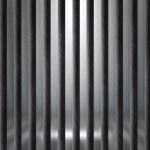Woman Who Defrauded Victims by Claiming to Have Cancer Imprisoned

A 24-year old woman who convinced her parents, friends and neighbours to give her tens of thousands of dollars by falsely claiming that she required the money for lifesaving cancer treatment has been sentenced to three months in prison and a 12 month community corrections order, in a case reminiscent of the Belle Gibson fraud.
In 2012, Melbourne woman Hanna Dickenson claimed she needed money to give her a chance of staying alive. She later claimed to need more money for procedures in Thailand and New Zealand, as she was not responding to treatment received in Australian hospitals.
But Dickenson was not suffering from cancer at all. Instead, she used the bulk of $42,000 she obtained to maintain her lifestyle of overseas holidays, partying and using illegal drugs.
She ultimately pleaded guilty to seven counts of ‘obtaining property by deception’.
Vulnerable victims
During the sentencing hearing, magistrate David Starvaggi heard that Dickenson’s parents were struggling financially when persuaded to give thousands to her supposedly dying daughter. After taking her parents for all they could provide, the defendant then sought money from friends and neighbours.
One victim had recently been discharged from hospital after undergoing his own cancer treatment, when he was duped into transferring $10,000 into Dickenson’s “urgent treatment” in March 2013.
The defendant’s scheme began to unravel when she posted pictures of herself partying, when she was supposedly in frail health.
After seeing the photos, one of the victims contacted police who launched an investigation which revealed that Dickenson had not been diagnosed with cancer at all.
Remarks on sentencing
His Honour described Dickenson’s conduct as “despicable”.
“It beggars belief that she approached her parents for assistance purporting to be suffering from … grave ill health,” he remarked.
“The court must rightly deter others from engaging in this sort of conduct, taking advantage of people willing to assist and advance moneys to support somebody in what is perceived to be very tragic or dire consequences.”
The magistrate imposed a sentence of three months’ full-time imprisonment, as well as a 12 month community corrections order requiring the defendant to undertake 150 hours of community service and undergo treatment for mental health issues and substance abuse.
Appeal pending
Ms Dickenson’s criminal defence lawyer has foreshadowed an appeal against the severity of the sentence, saying her client was punished more severely that wellness blogger Belle Gibson who also obtained money by claiming to have suffered from cancer.
The Federal Court fined Ms Gibson more than $400,000 after finding she breached Australian Consumer Law by seeking donations for a wellness diet on the basis of false claims it helped her beat cancer.
But it should be noted that Dickenson was prosecuted criminally rather than civilly, as was the case with Ms Gibson. And as magistrate Starvaggi noted, Dickenson preyed directly upon specific, vulnerable victims by claiming she would die without their funds, rather than broadly seeking donations from the general public.
Recent cancer scams
Last year, 40-year old Adelaide woman Angie Emma Walsh defrauded three people of more than $180,000 by falsely claiming to have cancer.
Ms Walsh appeared on the front page of a South Australian newspaper in 2008 and gone on radio claiming to have leukaemia. In fact, she did not have the disease at all.
She maintained her lie for two years, attending cancer support groups and ultimately convincing a nun, a priest and another victim to give her the money.
And just a few months ago, it was revealed that New South Wales woman Melissa Quinn faked three different types of cancers over several years to fleece $45,000 from fundraisers and donors – money which she claimed was to go towards her treatment.
Ms Quinn was also chosen as one of only 10 Australians to receive government-funded proton therapy overseas, at the cost of $200,000 per patient.
Beware of scammers
Registered charities have attempted to educate the public about such scams.
The Cancer Council says the public should be aware of people going from door-to-door requesting funds, as they often time their schemes with legitimate fundraising events. The organisation points out that its members always have branded clothing and ID badges. Fundraisers for the cancer council do not accept cash, but ask for donations through monthly direct debits.
Scamwatch has a dedicated page on fake charities, advising that people should be wary of donating to unregistered charities. It points out that legitimate charities will be registered – and that anyone can check an organisation’s credentials on the Australian Charities and Not-for-Profits Commission website.






